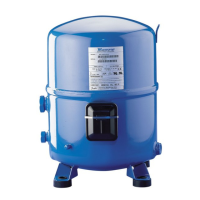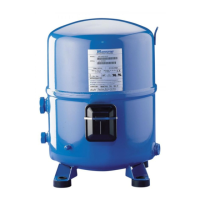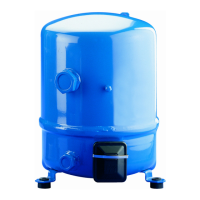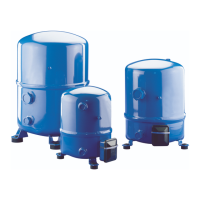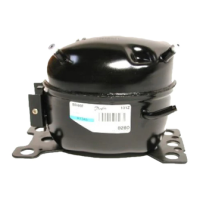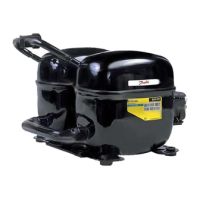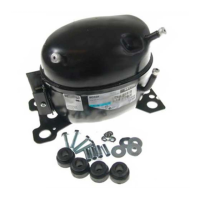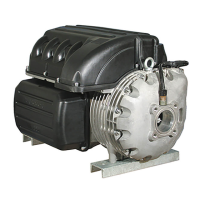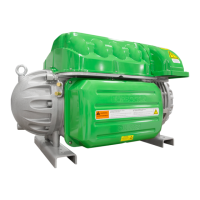Application guidelines
23FRCC.PC.002.A4.22
Installation and service
System pressure test
Compressor connection
to the system
Always use an inert gas such as nitrogen for the
pressure test. Never use other gasses such as oxy-
gen, dry air or acetylene. These gasses may form
an inammable mixture with the compressor oil.
Always use the appropriate pressure regulator
with gas cylinders. Any attempt to use a high
pressure gas supply without a suitable pressure
regulator can lead to personal injury or death as
well as system damage.
The maximum allowed test pressures for NTZ
compressors are:
New compressors have a protective nitrogen
holding charge. Only remove the suction and
discharge plugs just before connecting the
compressor to the installation, so as to prevent
air and moisture from entering the compressor.
Remove the discharge plug rst and the suction
plug next; by proceeding as such, the nitrogen
holding charge can escape via the discharge
connection and the risk of an oil mist blow-out
via the suction connection will be minimal.
Whenever possible the compressor must be the
last component to be integrated in the system. It
is advisable to braze the solder sleeves or service
valves to the pipework before the compressor
is mounted. when all brazing is nished and
when the total system is ready, the compressor
plugs can be removed and the compressor can
be mounted to the system with a minimum
exposure to ambient air. If this procedure is not
possible, the sleeves or valves may be brazed to
the pipes when mounted on the compressor. In
this situation nitrogen or CO
2
must be purged
through the compressor via the schrader valve to
prevent air and moisture ingress. Purging must
start when the plugs are removed and main-
tained during the brazing process.
When rotolock valves are used on the compres-
sor, they shall be closed immediately after moun-
ting, thus keeping the compressor isolated from
atmosphere or from a not yet dehydrated system.
Note: when the compressor is built into a "pack"
or "rack" conguration which is not installed
immediately on its nal location, a vacuum pull-
down and moisture removal must be performed
to the "pack" or "rack" as if it were a complete sys-
tem (see below). the pack must be charged with
nitrogen or CO
2
and open tubes must be blocked
with caps or plugs.
Maximum compressor test pressure at low pressure side
(suction side)
362 psi(g)
Maximum compressor test pressure at high pressure side
(discharge side)
435 psi(g)
Maximum test pressure dierence between high and low pressure side (to avoid that
the internal compressor relief valve will open)
435 psi
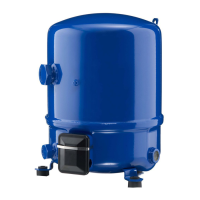
